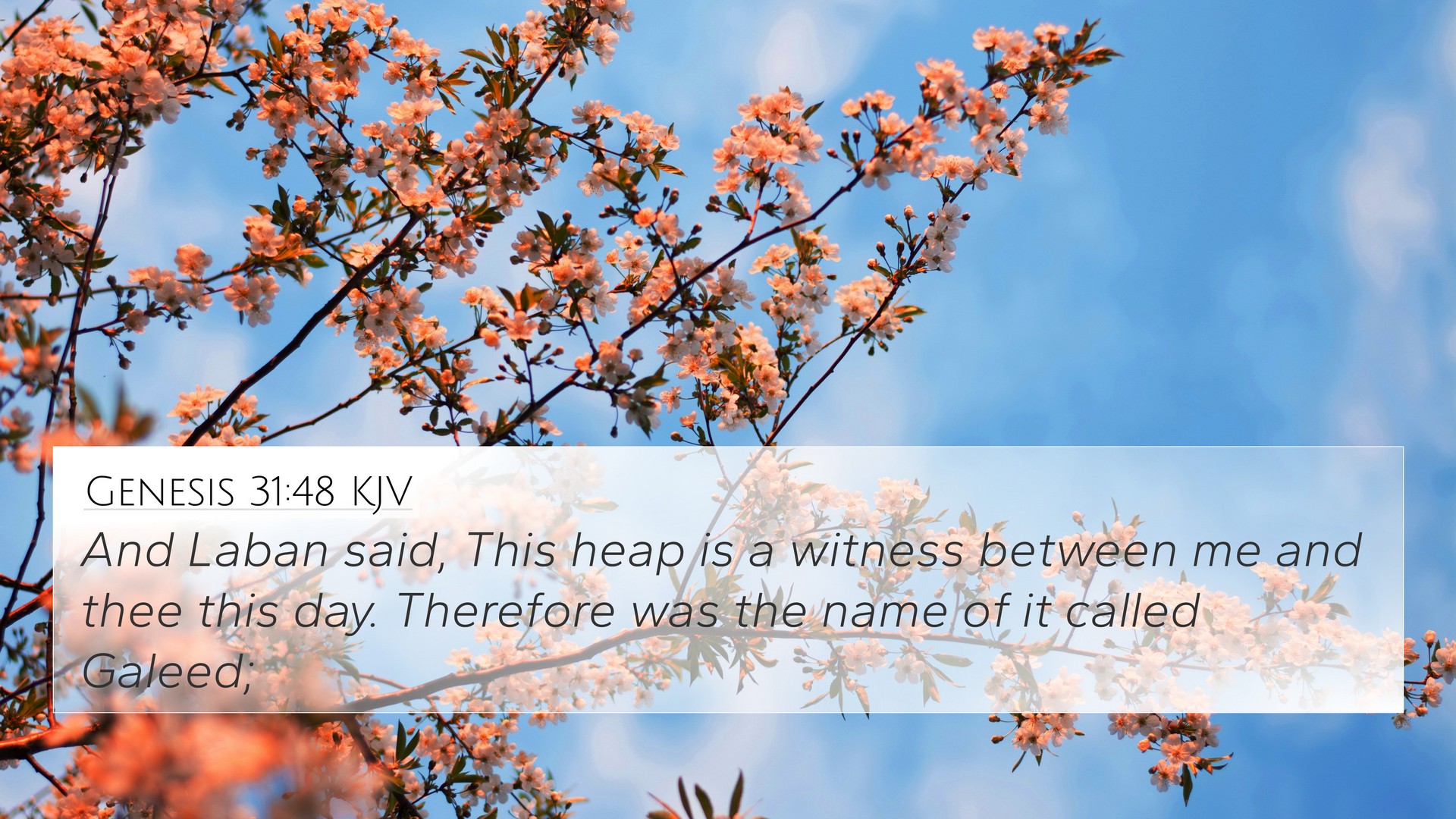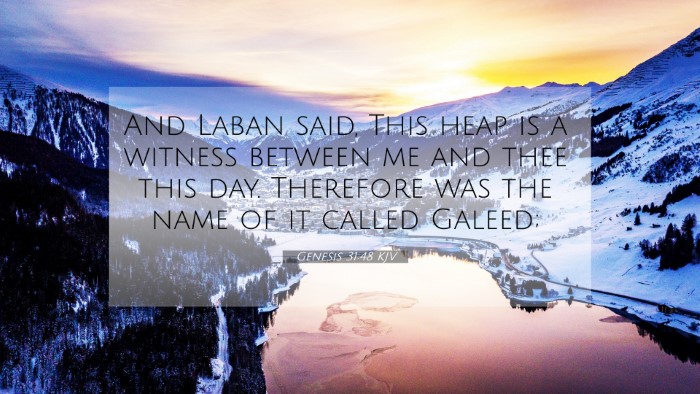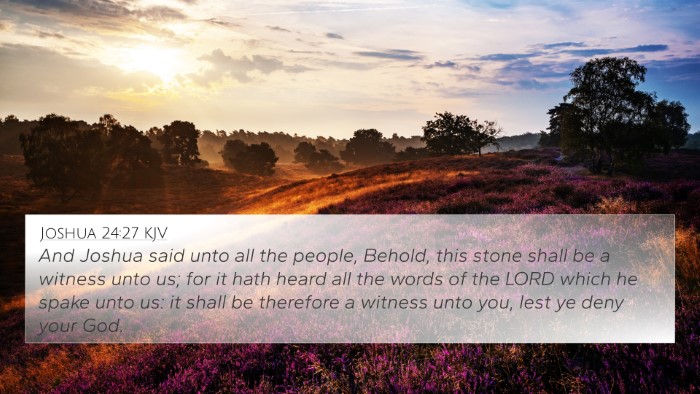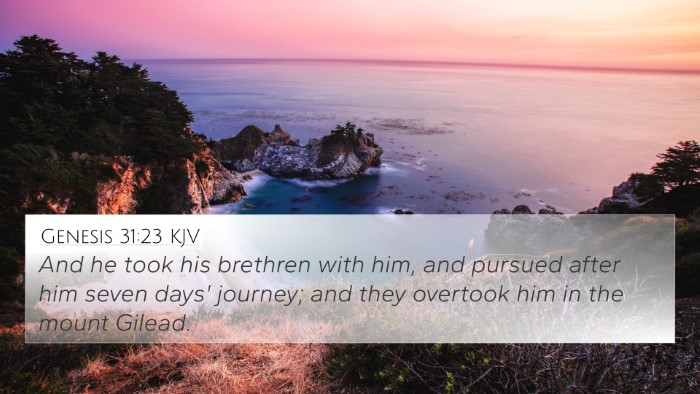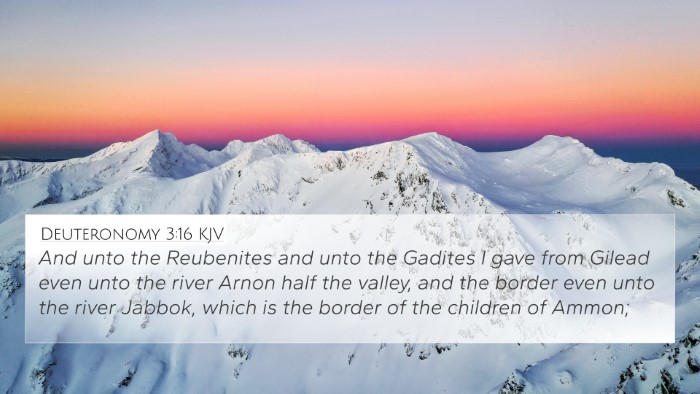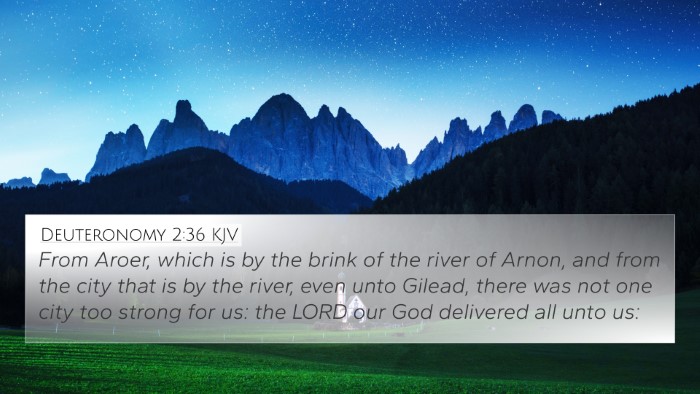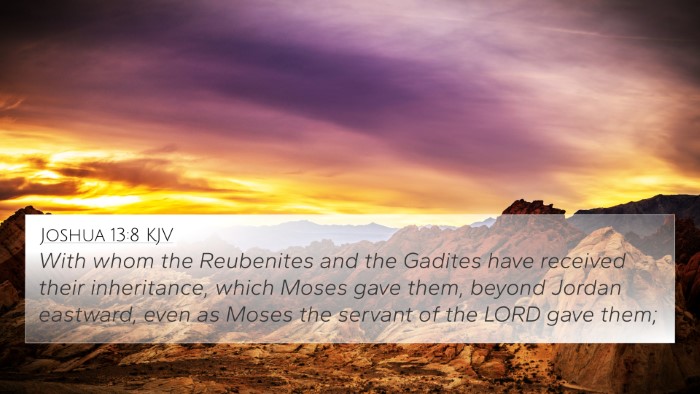Understanding Genesis 31:48
Genesis 31:48 states: "And Laban said, This heap is a witness between me and thee this day. Therefore was the name of it called Galeed."
This verse marks a significant moment of covenant-making between Jacob and Laban. The heap of stones signifies a boundary and serves as a memorial of their agreement.
Contextual Analysis
The narrative of Genesis 31 involves Jacob's departure from Laban after years of laboring for him. The tensions that arise from Jacob’s prosperity and Laban’s resentment culminate in a final confrontation where a covenant is established.
In this context, the heap of stones becomes a powerful symbol of their mutual agreement and serves to prevent future disputes.
Commentary Insights
Matthew Henry highlights that Laban's declaration of the heap as a witness points to the importance of establishing boundaries and honoring agreements in relationships. The heap symbolizes peace and the acknowledgment of shared experiences.
Albert Barnes explains that the name Galeed translates to "witness heap," which serves to remind both parties of their oath and the respect for God in making such agreements. The mention of a witness indicates both accountability and the seriousness of their covenant.
Adam Clarke elaborates further on the significance of naming places in the Bible. He notes that names serve as historical markers and reminders of God's involvement in human affairs, emphasizing the divine oversight in their transaction.
Cross-References for Deeper Understanding
- Genesis 31:44-45 - The establishment of peace between Jacob and Laban.
- Genesis 1:26 - The biblical precedent of agreements being made between parties.
- 1 Samuel 20:23 - The witness of a covenant established in the presence of God.
- Matthew 18:16 - The idea of establishing truth through witnesses, reinforcing the importance of agreements.
- Proverbs 16:7 - Highlights that when one's ways please the Lord, even adversaries can be reconciled.
- Hebrews 6:16 - Discusses how men confirm their covenant with oaths, paralleling a binding agreement.
- Romans 12:18 - Encourages believers to live peaceably with all men, akin to Jacob and Laban’s reconciliation.
Thematic Connections
The themes of conflict resolution, the importance of honoring commitments, and divine oversight in human matters are prevalent in this passage.
The heap of stones in Genesis 31:48 symbolizes a sacred space where commitments are recognized, tying back to biblical principles that stress the importance of maintaining peace and honoring one's word.
Cross-Referencing for Deeper Study
To deepen the understanding of Genesis 31:48, one can use various tools for Bible cross-referencing.
Tools for Bible Cross-Referencing can include:
- Bible Concordance – Useful for locating specific themes and words across scripture.
- Bible Cross-Reference Guide – For tracing thematic links between verses.
- Cross-Reference Bible Study – Enables systematic exploration of related texts.
Inter-Biblical Dialogue
Genesis 31:48 opens a dialogue with other passages emphasizing the value of establishing witness and oaths:
- Identifying connections between the Old and New Testament provides a comprehensive understanding of God's covenantal nature.
- Comparative studies of Pauline Epistles and their emphasis on agreement serve as a rich resource for understanding themes of unity and peace.
- Links between the Prophets and the Apostolic teachings echo the importance of fidelity in relationships.
Conclusion
Genesis 31:48 serves as a profound reminder of the sacredness of agreements, the acknowledgment of divine oversight in human dealings, and the importance of establishing peace.
Through cross-referencing related verses, we can gain further insights into the overarching themes of fidelity and the role of God in securing relationships.
